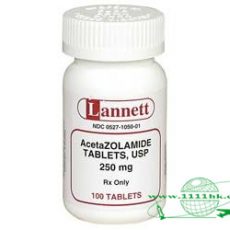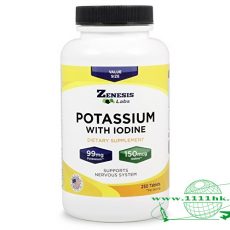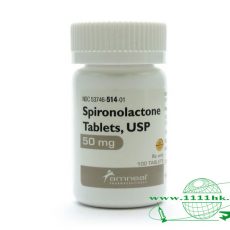-
Hypokalemia periodic paralysis
Acetazolamide
Diamox Sequels, Danmus-
other
Oral live vaccine for type 4 and type 7 adenovirus
【Product name】Ardovax
[English common name]Adenovirus types 4 and 7 live
[Chinese common name]Oral live vaccine for type 4 and type 7 adenovirus
[English name]
[Chinese other name]
[indications]
【Dosage】
[Storage]
[Tips] Some of the information on this site comes from the Internet and is only used internally by pharmacists or medical staff. It is not a substitute for doctors to diagnose face to face. Please consult a professional pharmacist for specific medications. Please refer to the actual product manual or the actual product for the product content.
[English common name] Acetazolamide
[Chinese common name] Acetazolamide
[Other names in English] Cidamex, Diamox
[Other Chinese names] Acetazol sulfonamide, ...
-
-
Hypokalemia periodic paralysis , High prostaglandin E syndrome (Bart syndrome)
Potassium chloride
【Product name】Microk, KLOR-CON
[English common name]Potassium Chloride
[Chinese common name]Potassium chloride
[English name]Sylvite, Muriate of potash
[Chinese other name]Slow release potassium, Bu Da Xiu
[indications]
Potassium chloride injection:
1. Treatment of hypokalemia: hypokalemia caused by various causes, such as inadequate eating, vomiting, severe diarrhea, application of potassium-sparing diuretics, hypokalemic family periodic paralysis, long-term application of glucocorticoids and hyperosmotic supplementation Glucose, etc.
2. Prevention of hypokalemia: When patients have potassium loss, especially if hypokalemia is harmful to patients (such as patients with digitalis), it is necessary to prevent potassium supplementation, such as eating less. Severe or chronic diarrhea, long-term use of adrenocortical hormone, potassium-deficient nephropathy, and Bartters syndrome.
3. Digitalis poisoning causes frequent, multi-source premature beats or tachyarrhythmia.
Potassium chloride sustained release tablets:
1. Treatment of hypokalemia: hypokalemia caused by various causes, such as inadequate eating, vomiting, severe diarrhea, application of potassium-sparing diuretics, hypokalemic family periodic paralysis, long-term application of glucocorticoids and hyperosmotic supplementation Glucose, etc.
2. Prevention of hypokalemia: When patients have potassium loss, especially if hypokalemia is harmful to patients (such as patients with digitalis), it is necessary to prevent potassium supplementation, such as eating less. Severe or chronic diarrhea, long-term use of adrenocortical hormone, potassium-deficient nephropathy, and Bartters syndrome.
3. Digitalis poisoning causes frequent, multi-source premature beats or tachyarrhythmia.
Potassium chloride and glucose injection:
1. Treatment of hypokalemia caused by various causes.
2. Prevention of hypokalemia, especially when hypokalemia occurs to patients with greater harm.
3. Treatment of rapid arrhythmia such as paroxysmal tachycardia or frequent ventricular tachycardia caused by digitalis poisoning, but avoid this product when there is conduction block.【Dosage】
Potassium chloride injection:
For severe hypokalemia or can not be taken orally. General usage 10% 15ml potassium chloride injection 105% into the 5% glucose injection 500ml infusion (avoid direct intravenous drip and bolus). The potassium dose, concentration and speed were determined according to the clinical condition and the potassium concentration and the potassium deficiency pattern of the electrocardiogram. The potassium concentration does not exceed 3.4 g/L (45 mmol/L), the potassium supplementation rate does not exceed 0.75 g/hour (10 mmol/hour), and the daily potassium supplementation amount is 3 to 4.5 g (40 to 60 mmol).
Potassium chloride sustained release tablets:
1. Adults each time 0.5g ~ 1g, 2 ~ 4 times a day, take after meals, and adjust the dose according to the condition.
2. The maximum daily dose for adults is 6g. For those who have gastrointestinal reactions in oral tablets, they can switch to oral solution and dilute in cold boiled water or drink.
Potassium chloride and glucose injection: slow intravenous infusion, generally 1 ~ 1.5g each time (about 2 bottles to 3 bottles), the daily dosage depends on the condition.[Storage]
Potassium chloride sustained release tablets: sealed and stored in a dry place.
Potassium chloride injection: sealed and stored.[Tips] Some of the information on this site comes from the Internet and is only used internally by pharmacists or medical staff. It is not a substitute for doctors to diagnose face to face. Please consult a professional pharmacist for specific medications. Please refer to the actual product manual or the actual product for the product content.
-
Gitelman syndrome , Hypokalemia periodic paralysis
Spironolactone
[Product name] Aldactone
[English common name] Spironolactone
[Chinese common name] Spironolactone
[English name] Aldonar, Verospiron
[Chinese other name] Spironolactone, selpirone
[Indications] ...
Hypokalemia periodic paralysis
Showing all 3 results



